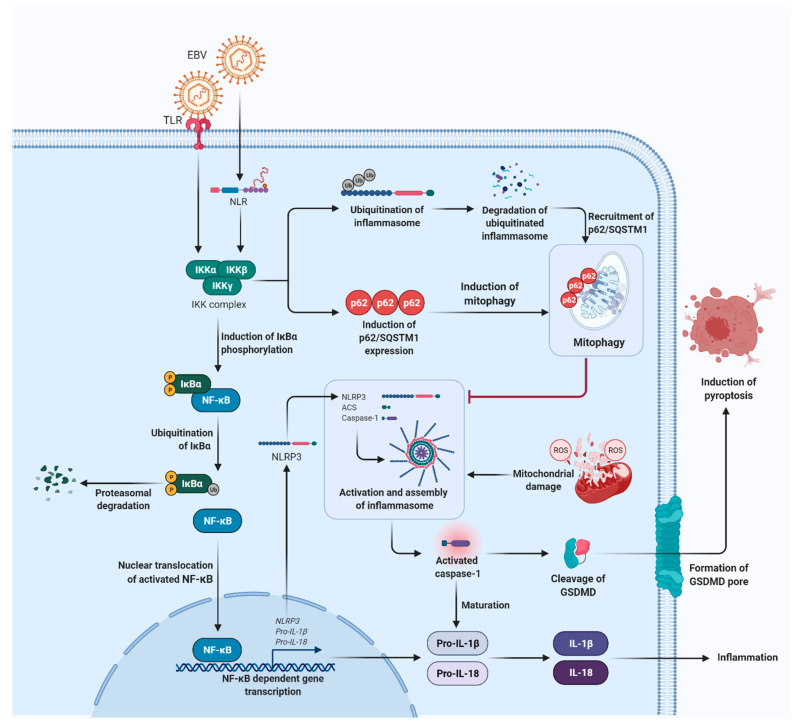Figure 3.
IKKs act as the negative regulator of inflammasome activation. IKK kinase complex which is made up of two kinases (IKKα and IKKβ) and a regulatory subunit (IKKγ), is the key regulator of NF-κB signalling. The phosphorylation of the inhibitor of NF-κB proteins, particularly the IκBα by IKKs, resulting in the ubiquitination and proteasomal degradation of IκBα. The activated NF-κB is then translocated into the nucleus to regulate target gene expression, which contributes to inflammasome activation, maturation and production of IL-1β and IL-18. The ROS released from damaged mitochondria serve as an important inflammasome activating signal, however, IKKs can induce autophagy clearance of damaged mitochondria by inducing the expression and accumulation of autophagy receptor, p62/SQSTM1. In addition, degradation of inflammasome components through ubiquitination triggers expression of p62/SQSTM1, and hence, negatively regulates inflammasome activation by promoting mitophagy. (IKK, inhibitory kappa B kinases; NF-κB, nuclear factor kappa B; IκBα, inhibitory subunit of nuclear factor kappa B alpha; ROS, reactive oxygen species; p62/SQSTM1, p62/sequestosome-1).

